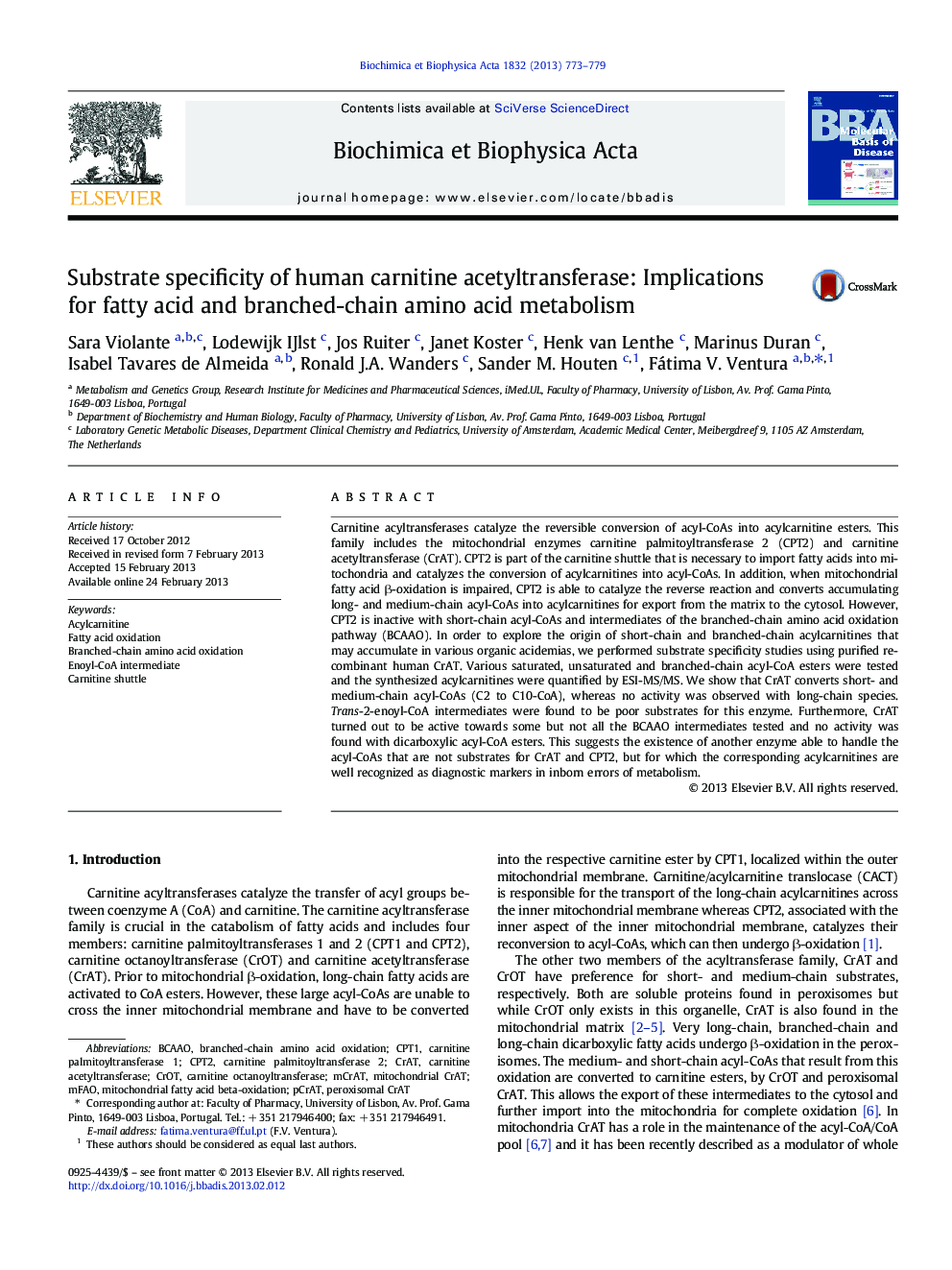| کد مقاله | کد نشریه | سال انتشار | مقاله انگلیسی | نسخه تمام متن |
|---|---|---|---|---|
| 1904848 | 1534671 | 2013 | 7 صفحه PDF | دانلود رایگان |

Carnitine acyltransferases catalyze the reversible conversion of acyl-CoAs into acylcarnitine esters. This family includes the mitochondrial enzymes carnitine palmitoyltransferase 2 (CPT2) and carnitine acetyltransferase (CrAT). CPT2 is part of the carnitine shuttle that is necessary to import fatty acids into mitochondria and catalyzes the conversion of acylcarnitines into acyl-CoAs. In addition, when mitochondrial fatty acid β-oxidation is impaired, CPT2 is able to catalyze the reverse reaction and converts accumulating long- and medium-chain acyl-CoAs into acylcarnitines for export from the matrix to the cytosol. However, CPT2 is inactive with short-chain acyl-CoAs and intermediates of the branched-chain amino acid oxidation pathway (BCAAO). In order to explore the origin of short-chain and branched-chain acylcarnitines that may accumulate in various organic acidemias, we performed substrate specificity studies using purified recombinant human CrAT. Various saturated, unsaturated and branched-chain acyl-CoA esters were tested and the synthesized acylcarnitines were quantified by ESI-MS/MS. We show that CrAT converts short- and medium-chain acyl-CoAs (C2 to C10-CoA), whereas no activity was observed with long-chain species. Trans-2-enoyl-CoA intermediates were found to be poor substrates for this enzyme. Furthermore, CrAT turned out to be active towards some but not all the BCAAO intermediates tested and no activity was found with dicarboxylic acyl-CoA esters. This suggests the existence of another enzyme able to handle the acyl-CoAs that are not substrates for CrAT and CPT2, but for which the corresponding acylcarnitines are well recognized as diagnostic markers in inborn errors of metabolism.
► We determined the substrate specificity of human carnitine acetyltransferase, CrAT.
► CrAT is responsible for the synthesis of short- and branched-chain acylcarnitines.
► Trans-2-enoyl-CoAs and 2-methylacyl-CoAs are poor substrates for CrAT.
► Short-chain dicarboxylic acyl-CoAs are not substrates for CrAT.
► Origin of most acylcarnitines detected in inborn errors of metabolism is resolved.
Journal: Biochimica et Biophysica Acta (BBA) - Molecular Basis of Disease - Volume 1832, Issue 6, June 2013, Pages 773–779